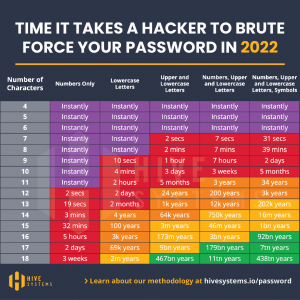Before the year’s end, in the midst of the holiday events, travel, and overall busyness, the last thing you want to think about is tackling your finances. But considering how finance-related resolutions are the third most popular New Year’s resolution, why don’t you give yourself a head start on next year’s financial goals by finishing this year strong? Here are ten critical financial actions you’ll be glad you took when the ball drops on New Year’s Eve!
- Amp Up Your Retirement Savings
If possible, max out your contributions to your 401(k) by the end of the year to make the most of your retirement savings. For 2018, you can contribute as much as $18,500 (or $24,500 if you are age 50 or older). You might also consider contributing to a Roth IRA. For 2018, you can contribute as much as $5,500 (or $6,500 if you are age 50 or older). Keep in mind that if your income is over $199,000 and you’re married filing jointly, you won’t be eligible to contribute to a Roth IRA.
- Use Your Medical And Dental Benefits
Did you have good intentions of taking care of some dental work, blood tests, or other medical procedures? Now’s the time to take advantage of all your healthcare needs before your deductible resets. Dental plans in particular often have a maximum coverage amount. If you haven’t used up the full amount and anticipate any treatments, make an appointment before December 31st.
- Verify Expiring Sick And Vacation Time
Depending on your company, your sick or vacation time might expire at the end of the year. Check with your HR department to learn about any expiration dates. If your sick or vacation time does expire, fit in a last-minute vacation, a staycation, or trips to the doctor to use up these benefits.
- Use Your Flexible Spending Account
Like your health insurance benefits, you’ll want to use up your FSA (Flexible Spending Account) dollars by the end of the year. Your benefits won’t carry over and you’ll lose any unspent money in your account. Check the restrictions for your account to see what the money can and cannot be used for.
- Double-Check RMDs
If you’re retired, review your retirement accounts’ required minimum distributions (RMDs). An RMD is the annual payout savers must take from their retirement accounts, including 401(k)s, SIMPLE IRAs, SEP IRAs, and traditional IRAs, when they turn 70½. If you don’t, you may face the steep penalty of 50% of the distribution you should have taken. To calculate your RMD, use one of the IRS worksheets.
- Stay On Top Of Charitable Contributions
If you made a charitable contribution in 2018, you might be able to lower your total tax bill when you file early next year. It can be especially advantageous if you donated appreciated securities to avoid paying taxes on the gains. Along with your other tax documents, find and organize any receipts you have from your donations to charities, whether it was a cash, securities contribution, or another type of gift.
- Review Your Insurance Coverages
A lot can happen in a year. As you experience life changes, from the birth of a child to marriage to a new career, it’s important to regularly review your insurance coverages and your designated beneficiaries. Now is the ideal time to review your current insurance policies and make sure they are up to date. You might also want to evaluate your need for other types of insurance you may not currently have, such as long-term care insurance.
- Prepare For A Market Correction
We are currently in the longest bull market in history2 and the stock market just keeps hitting record highs3. But we know that what comes up must eventually come down. Prepare yourself and your money by sticking to a long-term strategy, rebalancing your portfolio, and keeping your emotions in check. As long as you are following sound investment principles, only investing long-term money, and keeping your assets within your risk tolerance, you should have no reason to panic when we experience a market downturn.
- Talk To Your Kids About Money
The holidays are usually a time for families to get together and reconnect. Use this time intentionally by talking with your kids about money. No matter how old they are, you can give them sound wisdom that will set them up for success. Make sure they understand the importance of saving for retirement and having the proper amount of insurance coverage. Another way to help your kids financially is to create an estate plan to make sure you leave a legacy and avoid passing down a significant tax burden or legal headaches to your kids. If you’ve already taken the time and energy to create an estate plan, you’ll want to check in periodically to ensure all the documents are up to date and no major details have changed.
- Give Without Gift Tax Consequences
It’s never too early to start planning for the legacy you want to leave your loved ones without sharing a good portion of it with Uncle Sam. You may want to consider gifting. Each year you can gift up to $14,000 to as many people as you wish without those gifts counting against your lifetime exemption of $5 million. If you’ve yet to gift this year or haven’t reached $14,000, consider gifting to your children or grandchildren by December 31st.
- http://www.statisticbrain.com/new-years-resolution-statistics/
- https://www.cnbc.com/2018/08/22/longest-bull-market-since-world-war-ii-likely-to-go-on-because-us-is-best-game-in-town.html
- https://www.usatoday.com/story/money/2018/08/21/stocks-hit-record-highs/922315002/


